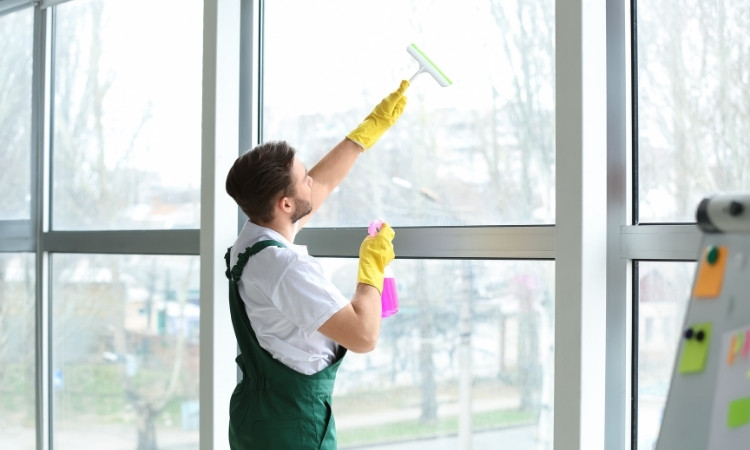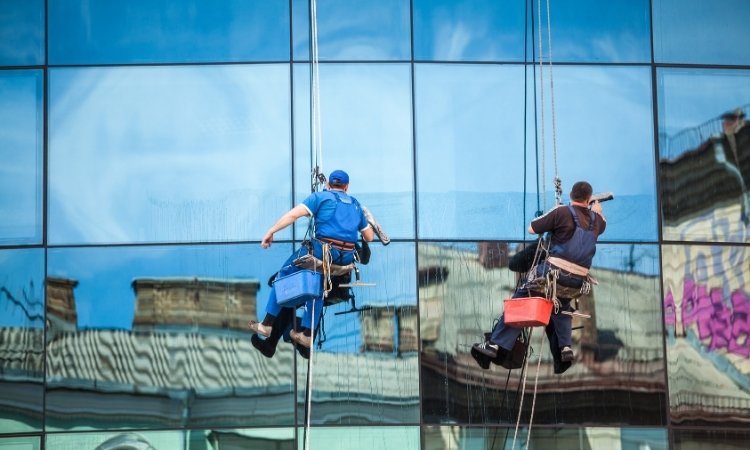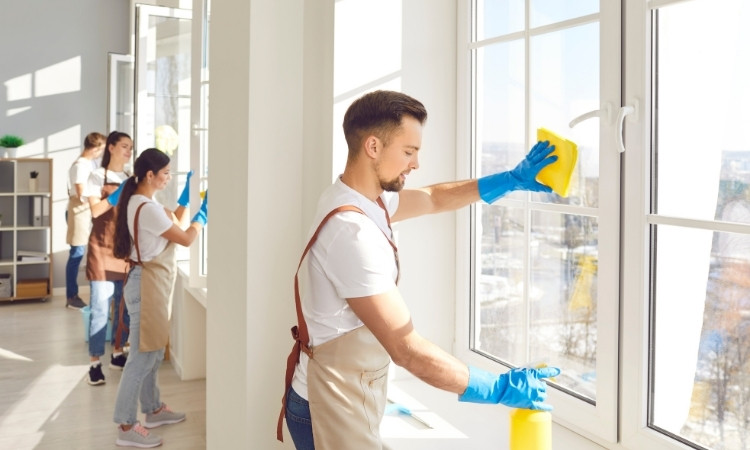If you’re trying to remove hard water spots from windows in Singapore, you know how stubborn those white stains can be. I’ve lived in a ground-floor HDB unit in Yishun for years, and every time it rains, I see new marks on my kitchen and bathroom windows. These hard water spots come from mineral deposits left behind when water evaporates, and they’re a common problem in Singapore’s tropical climate.
With our mix of heat, humidity, frequent rainfall, and dusty air from nearby roads or construction, the problem isn’t just cosmetic, and it builds up fast. But with the right methods, tools, and a bit of patience, your windows can sparkle like new again.
I’ve tested multiple methods, and here’s a detailed breakdown of what works and what doesn’t. Therefore, LS Window Repair Services Singapore comes forth to explain the complete process remove hard water spots from windows in Singapore. Moreover, their window lock replacement, window installation, and window rivet replacement are the best in Singapore.
What Are Hard Water Spots and Why Do They Occur in Singapore?
Hard water spots form when water containing minerals like calcium and magnesium dries on glass surfaces. Over time, these minerals harden and leave cloudy white marks that don’t wash off easily.
In Singapore, we face a unique mix of issues:
- High humidity encourages mineral deposits to stick.
- Frequent rain leaves residue on glass panels.
- Tap water with mineral content can create spots during window cleaning.
- Construction dust and pollution can make the problem worse, especially in urban areas like Bedok, Tampines, or Clementi.
How to Remove Hard Water Spots From Windows
I’m going to share the exact steps I follow every month. I use safe, easily available materials, nothing fancy or harsh. These are methods that have worked for me in a Singapore flat.
Step 1: Spray White Vinegar on the Glass
I use regular white vinegar from the supermarket. It costs less than $2 for a bottle and works better than many branded cleaners.
What to do:
- Mix the same amount of vinegar and water in the spray bottle.
- Spray it directly onto the stained areas.
- Let it sit for 10 minutes. This helps loosen the mineral residue.
Tip: Make sure the window is in the shade. If the sun is shining on it, the vinegar may dry too quickly before it can work.

Step 2: Wipe with a Microfiber Cloth
I always use a soft microfiber cloth for this part. You can get a good one from Daiso or Mr. DIY.
- Wipe the glass using slow, circular motions.
- For windows in the kitchen or toilet that get more stubborn spots, apply gentle pressure.
- If the stain remains, don’t scrub harder. Just go to the next step.
Step 3: Apply Baking Soda Paste
Some spots don’t come off easily, especially on my bathroom window that faces the corridor. For these, I use baking soda.
Here’s how:
- Combine 2 tablespoons of baking soda and only enough water to turn it into a paste.
- Dab it onto the spot using your fingers or a cloth.
- Let it sit for a few minutes, then scrub lightly.
- Wipe it off with a damp cloth.
This works especially well for old stains on glass panels in areas like the service yard or glass balcony dividers.
Step 4: Rinse and Dry Properly
After the scrubbing, it’s important to rinse off any leftover vinegar or baking soda.
- Use clean water (preferably filtered or distilled).
- Rinse with a sponge or wet cloth.
- Wipe dry with a clean towel or a squeegee.
Pro Tip: If your home faces the west, your windows will dry faster and show spots more easily. Drying the window well helps prevent new marks.
Alternative Methods to Remove Water Spots From Windows
If the vinegar method doesn’t work, or if you prefer store-bought products, you can try these alternatives for removing hard water spots from windows:
1. Lemon Juice
I’ve used lemon juice when I ran out of vinegar. You can bring your window back to life by cutting a lemon in half and rubbing the juicy part onto the window. While it takes time, it works well with mild stains.
2. Commercial Cleaners
There are products like CIF or Astonish that remove limescale. These are available at FairPrice and Sheng Siong. Make sure you use them only on plain glass, not tinted or frosted windows.
3. Distilled Water Wipe-Down
Now, I place a spray bottle of distilled water close to the kitchen window. Once I’m done cooking or cleaning, I spray the glass and wipe it clean to prevent spots.

4. Professional Window Cleaning Services
You might need to call in professionals if you have a high-rise unit or a balcony made entirely of glass. One-time clean-ups are available in Singapore for buildings with water-fed poles or lift systems for condos and commercial units.
Preventing Hard Water Spots in Singapore
Here are some long-term strategies:
- Install Rain Guards or Overhangs: This is especially helpful for homes in rainy zones like Bukit Timah or Queenstown.
- Use Distilled Water for Cleaning: Tap water may leave behind minerals. Distilled water reduces this.
- Apply a Glass Sealant: These add a protective layer and make future cleaning easier.
Conclusion:
To remove hard water spots from windows in Singapore, you need to do it the right way, at the right time, and with regular effort. The goal is to clean the glass right away with vinegar, baking soda, or commercial liquids before the stains set in.
Now that you know how to remove hard water spots from windows, you’re better equipped to handle this nuisance head-on. In my experience, only about 15–20 minutes a week is enough to keep your windows clean and clear.
So, go ahead and try these methods. You’ll thank yourself the next time sunlight streams through a spot-free pane.

